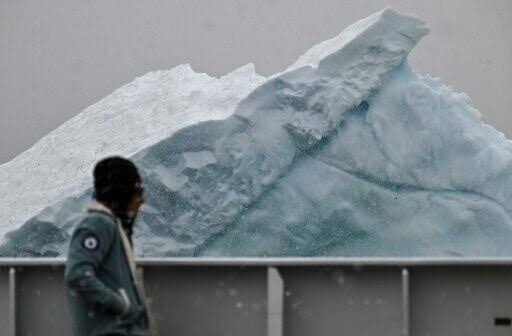Colombian mission to Antarctica analyzes climate change footprints

Colombia’s 10th Antarctic Expedition is currently underway, venturing into the farthest reaches of the continent to investigate the impact of climate change on this remote and largely untouched environment, inhabited by penguins, whales, and the occasional seal.
Embarked on the Colombian Navy’s ARC Simon Bolivar, the expedition comprises 39 researchers conducting 11 Colombian projects and collaborating on nine international projects with four nations. Describing Antarctica as the “world’s refrigerator,” Pablo Araujo, a researcher from the Central University of Ecuador aboard the ship, emphasized the mission’s primary goal of understanding how climate change is affecting the crucial nutrient balance in the sea.
Utilizing cutting-edge technology, Ecuadoran scientist Pablo Araujo is employing machine learning techniques to model Antarctic ecosystems. Through the application of these models and satellite imagery, researchers are meticulously examining the dynamics of greenhouse gas fluxes in Antarctic ecosystems, shedding light on the intricate relationships within this delicate environment.
One team from Colombia is deploying a series of Niskin bottles, specialized for water sampling, into the Antarctic ocean. Researcher Alexis Grattz from the Directorate General of Maritime Affairs explained the meticulous process of collecting these samples from the surface, laying the groundwork for comprehensive subsequent analysis.
At the Ecuadoran scientific station on Greenwich Island, a portable weather station has been installed by the maritime authority to record atmospheric pressure oscillations. Maritza Moreno, another researcher from the Directorate General of Maritime Affairs, emphasized that these measurements are pivotal in understanding variations in sea level—an essential indicator in comprehending the evolution of climate change.
Simultaneously, a Turkish mission is investigating levels of polycyclic aromatic hydrocarbons (PAHs) in Antarctic soil. Burak Karacik, a professor at Istanbul Technical University, is collecting sediment samples to analyze persistent organic pollutants, aiming to decipher the impact of human activities on the pristine Antarctic environment.
This multifaceted mission reflects a collaborative global effort to unravel the intricate nuances of climate change and its repercussions in one of the world’s most remote and ecologically significant regions.












